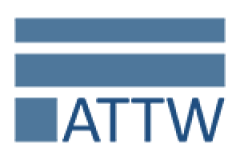Citation for Ann Blakeslee
Dear Professor Ann Blakeslee,
It is my honor to notify you that you are being elevated to Fellow of the Association of Teachers of Technical Writing. The ceremony will be held on April 6th, 2011 during the annual business meeting.
Elevation to fellow is a celebration of your achievements but this particular award is a celebration of something more. It is a recognition of the kind of scholar we hope to encourage in our field. Your career demonstrates that an accomplished scholar of technical communication can also be a great teacher, a leader at her university, and an invaluable resource for an organization like the ATTW. When your name was put forward for nomination, you were a clear and deserving choice.
Your introduction into this field was at Miami University of Ohio where you graduated in 1987 with an MA in Technical and Scientific Communication. Masters degrees in Technical Communication were a rare species in English departments, and it took a certain amount of courage to decide to earn a masters degree in what was then considered a niche field and perhaps a career dead end. I can just imagine how the title of your thesis, “Technical Writing at an Advertising Firm: An Internship at Falgren and Swink,” sounded to the literature faculty. Surely, there were questions like, “What is she going to do with that?” or “Is that really an English thesis?” Today, we know better. You went on to Carnegie Mellon, another cornerstone program in our field, graduating in 1992 with a Ph.D. in Rhetoric. Your dissertation was “Inventing Scientific Discourse: Dimensions of Rhetorical Knowledge in Physics.” You were still a pioneering student, but degrees in our field were becoming more widespread.
Your academic career began as an assistant professor at the University of Illinois, where your impact was immediately felt. You coordinated the university’s writing across the curriculum efforts, and you served as the Director of Instructional Computing and the Director of the University Partners Program. It’s rather clear you were eager to get involved with some of the heavy lifting at the University of Illinois’ Center for Writing Studies.
You moved to Eastern Michigan University in 1996 and have held a variety of posts on campus. Currently, you are the Director of the Writing Center, where in addition to your many responsibilities, you are coordinating the Family Literacy Project that reaches out to the community. As Director of Writing Across the Curriculum, you have been integrally involved in encouraging more writing throughout the campus. You also co-chaired the implementation of the General Education curriculum at Eastern Michigan.
Your colleagues at Eastern Michigan also sing your praises. Professors Nancy Allen and Steve Benninghoff offered this statement:
In her time at Eastern Michigan University, Ann has been invaluable both as a teacher and in developing our programs' relationships with the local STC and its members, many of whom are graduates of the EMU program. In the best sense of a technical communicator, Ann is a “connector.” She actively recruits professionals to visit classes and participate in Q&A sessions, giving students a chance to learn about their future profession directly from practitioners. In these sessions, students’ questions and perspectives in turn engage practitioners in stepping back and reflecting on education, work practice, and life. She places students with positions that are good learning opportunities and good permanent positions. In short, in all of these ways Ann is an effective community builder for our program and school—the highest praise we can give.
Let me turn to your scholarship. It would impossible for me to do full justice to your body of work, so I will highlight the works that have made the most impact on our field. You have written two books that are widely read and referenced, Interacting with Audiences: Social Influences on the Production of Writing (2001) and Becoming a Writing Researcher (2007). You have published numerous articles in the Journal of Business and Technical Communication (JBTC), Technical Communication Quarterly(TCQ), Language and Learning Across the Disciplines, and Science, Technology, and Human Values. You have edited two special issues for JBTC. And, you have contributed articles to a large number of edited collections, including books that have won awards.
Finally, I want to highlight your service to the ATTW. Being treasurer of an organization like ours is one of those invisible, thankless tasks. We can all agree, though, that the ATTW would not be the strong organization it is without your contributions. You have been treasurer of the organization since 1998. That means you have spent thirteen years balancing our budgets, paying our bills, minding our investments, collecting money at conferences, and coordinating with Taylor & Francis. When I think about how far the ATTW has come in those thirteen years, I am amazed to think that you were in the center of the remarkable evolution and growth of our organization. We have come a long way in that amount of time, and you have been one of the key people who has carried this organization and set it on a firm foundation. Much of what we see around us—the ATTW Conference, Technical Communication Quarterly, our healthy membership—would not have been possible without you.
Elevation to ATTW Fellow is the best way we can thank you for all your contributions to the field as a scholar, a teacher, a mentor, and someone who makes sure the bills are paid and the lights stay on. For these reasons, the Fellows of the Association of Teachers of Technical Writing welcome you as someone who has tirelessly promoted our profession and served as a beacon to others.
We thank you for your work and look forward to your continued leadership in the future.
Sincerely,
Richard Johnson-Sheehan
Chair, ATTW Fellows Selection Committee
Professor of Rhetoric, Purdue University
